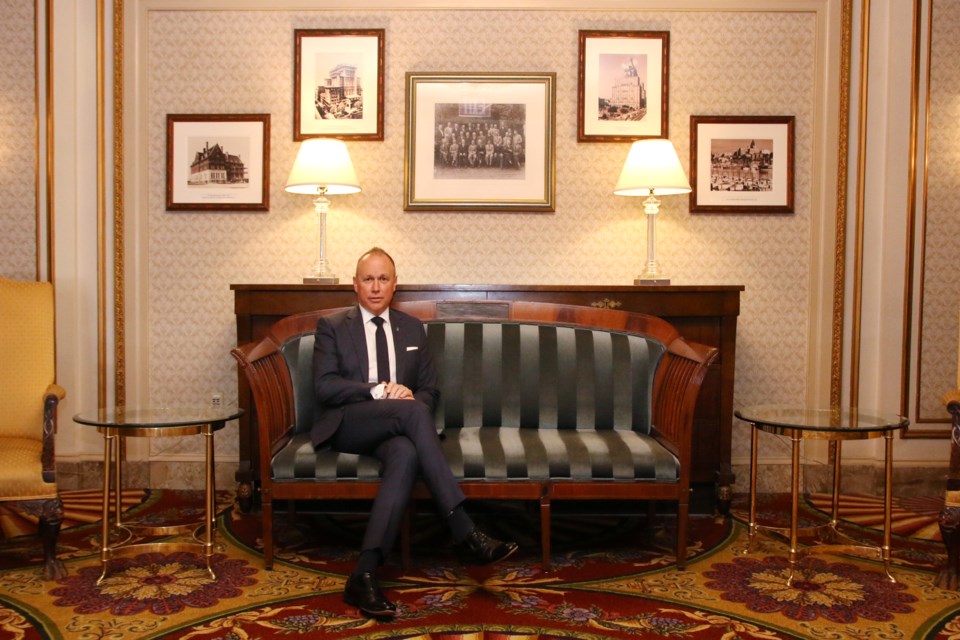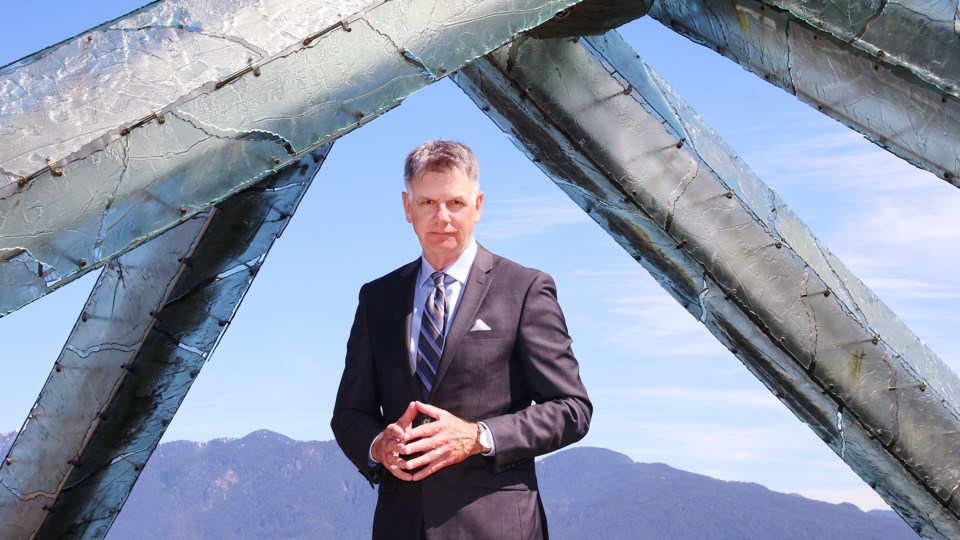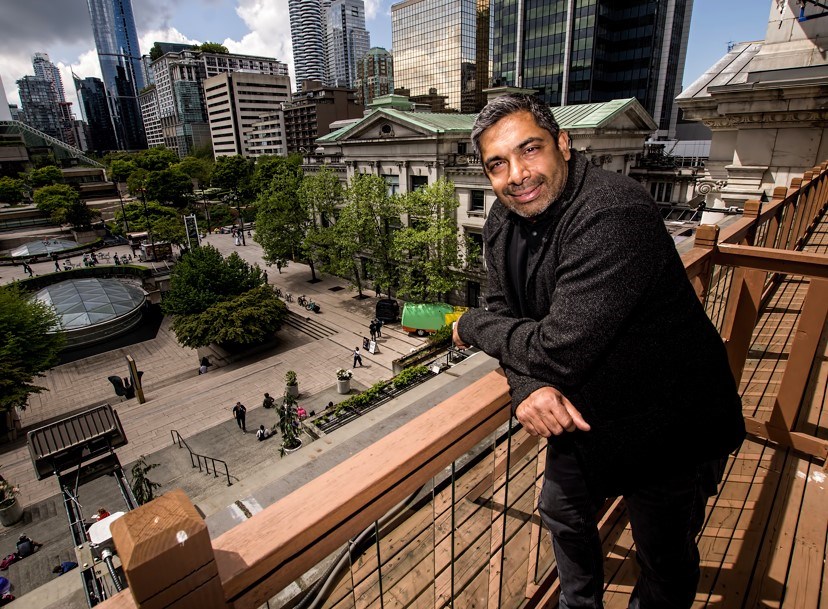Vancouver tourism-destination executives are cautiously predicting a banner season this summer, although some signs point to a drop in visitors compared with last year.
Cruise traffic, for example, is expected to be lower.
Recession fears have ramped up with U.S. President Donald Trump threatening punishing tariffs on Canadian goods, causing some consumers to prepare for the worst by cutting back on spending and deciding not to travel.
Trump’s America-first rhetoric also whipped up nationalistic sentiment south of the border. Several tourism advocates told BIV that as many as five U.S. corporate gatherings planned for Vancouver were recently cancelled due to a mix of geopolitical or economic reasons.
“We’ve all lost bits and pieces,” said Fairmont Hotel Vancouver general manager Adam Laker, referring to major downtown Vancouver hotels losing event business from U.S. companies.
“They don’t want to be seen as having a large conference and spending money in the Canadian economy. They think it’s better and safer if they have events in the U.S.”
Some Canadian convention organizers have also pivoted and shifted events planned in U.S. destinations to Canada, but Laker told BIV that this is happening “not to the same scale” as U.S. convention organizers cancelling events.

Sean Antonson, general manager of the Sheraton Wall Centre, said no large U.S. corporate events have been cancelled at his hotel, but that he has heard that some event cancellations elsewhere stem from organizers hearing that U.S. residents who are not citizens did not want to attend for fear of not being allowed back into the United States.
Trump’s tariff threats have also bolstered a sense of Canadian nationalism.
While frugality on the part of consumers might result in fewer trips, tourism operators have told BIV they anticipate more Canadians will travel domestically and perhaps take more staycations — avoiding travel costs as tourists in their own cities.
“U.S. corporate group business has slowed but there’s been a pick-up in transient and leisure business,” said BC Hotel Association CEO Paul Hawes.
“That is a combination of U.S. individual travellers and Canadian travellers.”
Hawes said he has heard from hotel executives that many Europeans and Australians who had planned to visit the U.S. have instead booked vacations in B.C.
“More people are visiting our website from outside B.C., but within Canada,” said Melissa Karmen Lee, CEO of Vancouver’s Chinese Canadian Museum (CCM).
“We’re hoping that more people visiting our website domestically will translate into more visits this summer.”
Lee’s museum opened in mid-2023, and attracted about 8,000 people that first summer. She estimated that the visitor count fell to around 6,000 last summer because her museum continued to have the same exhibits that it had in 2023.
She forecasts visits this summer will again reach around 8,000 because two new exhibits are launching this month: A military exhibition about Chinese Canadians in the Second World War, and an exhibit on Cantonese and Mandarin pop music in the 1980s and 1990s.
“The exhibits are for completely different but complementary audiences, so we’re hoping to get a mix of different visitors to come to the museum,” she said.
Those who visit the museum often also visit Chinatown attractions such as the Dr. Sun Yat-Sen Classical Chinese Garden and the Chinatown Storytelling Centre, she said.
Cruise ships bring many of CCM’s visitors, Lee said.
In April, she had a busload of about 40 German tourists eager for a guided tour, she told BIV.
This is why she is excited that the Vancouver Fraser Port Authority (VFPA) is forecasting a banner 2025 cruise season, with about 1.2 million visitors.
That is below a record season last year, when about 1.32 million cruise passengers visited Vancouver. But if the VFPA’s forecast becomes reality, this year’s cruise visitor count will be the third largest in the city’s history, after 2024 and the 1.25 million passengers in 2023.
Before then, the record for cruise visitors in a calendar year was 1.1 million, set in 2019, according to the VFPA.
Industry expects strong summer tourism season
Large conventions are part of the rationale behind expectations that Vancouver’s summer tourism season will be strong this year.
The global technology sector’s Web Summit is slated for late May. Vancouver is then set to host what could be the largest convention in its history when up to 60,000 people are expected to travel to attend an Alcoholics Anonymous’ convention July 3 through 6.
“We’re busier and ahead of our pace from previous years,” Graeme Benn, general manager of the JW Marriott Parq Vancouver and Douglas hotels, told BIV.
“I expect that to continue all the way through Labour Day weekend.”
Optimism also comes from Prime Minister Mark Carney promising several initiatives to make tourism more affordable this summer.
One campaign commitment was to make national park and historic site access free for everyone from June through August.
Another was to reduce prices for Canadians at camp sites in national parks during those peak months.
Carney said his government would introduce heavily discounted access and fares for those aged 18 to 24 years to visit national museums and galleries.

A grander promise was to create what he called the Strong Canada Pass, which would take effect from June to August.
The passes would provide free access to national museums and galleries for those younger than 18 years. They would also enable youth who travel with parents to ride VIA Rail trains for free.
Rocky Mountaineer CEO Tristan Armstrong told BIV that he likes that the government is encouraging train travel, because young train riders today may be his customers tomorrow.
Rocky Mountaineer’s trips in B.C. are vastly different from those on VIA Rail. Trains and meals on the former are first-class offerings, with passengers staying at hotels each night to ensure their entire train journeys take place in daylight. The customer demographic is older, in part because itinerary price tags can top $8,000.
Prices have risen with inflation, but Armstrong said his railway offers some discounts, including one that provides reduced fares for Canadian residents.
“We’ll be serving close to 100,000 guests in Canada, and that’s about an eight-per-cent gain from last year,” he said.
Rocky Mountaineer’s Canadian season runs April 14 through October 13. The company also has U.S. trips, but about 90 per cent of its business is in Canada, Armstrong said.
Passengers often stay additional nights in Vancouver, which is lucrative for premium hotels.
“Their guests stay with us,” said Antonson of his Sheraton Wall Centre. “They also stay at the Fairmont hotels and the Sutton Place or the Hyatt. The Rocky Mountaineer is a powerhouse in Vancouver. They bring a lot of business into the city.”
Science World is hoping to exceed last summer’s roughly 200,000 visitors, thanks in part to a new exhibit launching June 26, CEO Tracy Redies told BIV.
“Our upcoming feature exhibition is designed to be a major summer attraction, offering a unique combination of space exploration and the universally loved Lego bricks brand,” she said. “We expect it to resonate strongly with families and space enthusiasts.”
Science World recently reopened a 35,000-square-foot outdoor gallery dubbed Ken Spencer Science Park, which provides visitors with interactive exhibits featuring B.C. ecosystems, she said.
Science World raised prices on its various fares by about 2.5 per cent compared with last year, Redies added.
Over at the Vancouver Art Gallery, interim co-CEO Sirish Rao told BIV that he expects a slight increase in visitors this summer due to new exhibitions.
The gallery last year welcomed about 172,000 visitors, with around 40 per cent of them during the June-through-August period, he estimated.
A rise in Canadian nationalism may generate interest in the gallery’s exhibit on Québec painter Jean-Paul Riopelle, Rao said. Another exhibit is on B.C. ceramics, among other attractions, he added.

Sirish Rao was promoted to be interim co-CEO at the Vancouver Art Gallery, alongside Eva Respini, after the departure in March of former CEO Anthony Kiendl | Chung Chow, BIV
“People are really wanting to lean into this cultural moment,” he said. “We imagine more people staying in Canada this summer than last year, and many locals.”
Rao said staycationing locals think of the Vancouver Art Gallery as a place to go with their families, particularly during heat waves as the gallery is air conditioned.
A discounted admission fare for those who live in B.C. — $29 instead of $35 for the regular adult admission — is another effort to attract local guests.
Fuelling business for all tourist attractions are efforts from Vancouver-based Destination Canada, which markets the country to the world.
British Columbia Tourism Industry Association CEO Walt Judas told BIV that sufficiently funding that organization is key to industry success.
“Perhaps [the new government] could increase Destination Canada’s budget to ensure we’re not only keeping up with the rate of inflation but can compete globally against other countries that are looking for the same business in the same markets that we are,” he said.



